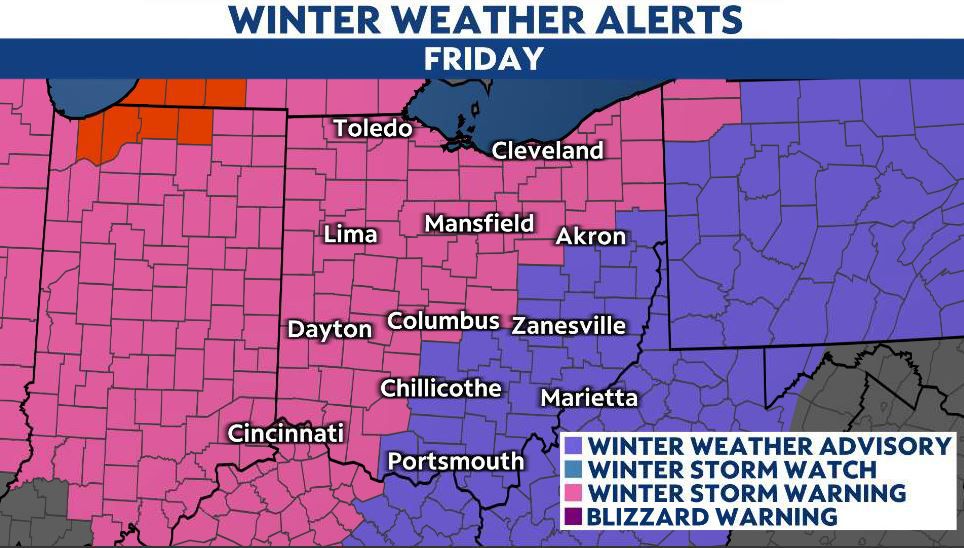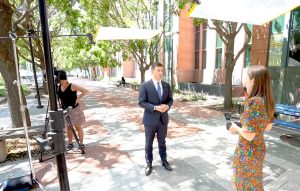The House Jan. 6 committee’s final report asserts that Donald Trump criminally engaged in a “multi-part conspiracy” to overturn the lawful results of the 2020 presidential election and failed to act to stop his supporters from attacking the Capitol, concluding an extraordinary 18-month investigation into the former president and the violent insurrection two years ago.
The 814-page report released Thursday comes after the panel interviewed more than 1,000 witnesses, held 10 hearings and obtained millions of pages of documents. The witnesses — ranging from many of Trump’s closest aides to law enforcement to some of the rioters themselves — detailed Trump’s actions in the weeks ahead of the insurrection and how his wide-ranging pressure campaign to overturn his defeat directly influenced those who brutally pushed past the police and smashed through the windows and doors of the Capitol on Jan. 6, 2021.
“The central cause of January 6th was one man, former President Donald Trump, who many others followed,” reads the report. “None of the events of January 6th would have happened without him.”
The insurrection gravely threatened democracy and “put the lives of American lawmakers at risk,” the nine-member panel concluded.
The report’s eight chapters of findings tell the story largely as the panel’s hearings did this summer — describing the many facets of the remarkable plan that Trump and his advisers devised to try and void President Joe Biden’s victory. The lawmakers describe his pressure on states, federal officials, lawmakers and Vice President Mike Pence to game the system or break the law.
Trump’s repeated, false claims of widespread voter fraud resonated with his supporters, the committee said, and were amplified on social media, building on the distrust of government he had fostered for his four years in office. And he did little to stop them when they resorted to violence and stormed the Capitol.
The massive, damning report comes as Trump is running again for the presidency and also facing multiple federal investigations, including probes of his role in the insurrection and the presence of classified documents at his Florida estate. This week is particularly fraught for him, as a House committee is expected to release his tax returns after he has fought for years to keep them private. And Trump has been blamed by Republicans for a worse-than-expected showing in the midterm elections, leaving him in his most politically vulnerable state since he won the 2016 election.
It is also a final act for House Democrats who are ceding power to Republicans in less than two weeks, and have spent much of their four years in power investigating Trump. Democrats impeached Trump twice, the second time a week after the insurrection. He was acquitted by the Senate both times. Other Democratic-led probes investigated his finances, his businesses, his foreign ties and his family.
On Monday, the panel of seven Democrats and two Republicans officially passed their investigation to the Justice Department, recommending the department investigate the former president on four crimes, including aiding an insurrection. While the criminal referrals have no legal standing, they are a final statement from the committee after its extensive, year-and-a-half-long probe.
Trump has tried to discredit the report, slamming members of the committee as “thugs and scoundrels” as he has continued to falsely dispute his 2020 loss.
In response to the panel’s criminal referrals, Trump said: “These folks don’t get it that when they come after me, people who love freedom rally around me. It strengthens me.”
The committee has also begun to release hundreds of transcripts of its interviews. On Thursday, the panel released transcripts of two closed-door interviews with former White House aide Cassidy Hutchinson, who testified in person at one of the televised hearings over the summer and described in vivid detail Trump’s efforts to influence the election results and indifference toward the violence as it occurred.
In the two interviews, both conducted after her July appearance at the hearing, she described how many of Trump’s allies, including her lawyer, pressured her not to say too much in her committee interviews.
Among the thousands of pages of testimony — from White House officials, the leaders of the extremist Oath Keepers and Proud Boys groups and others — the gripping account from Hutchinson, a quiet aide who had a front-row seat to the presidency, disclosed details about the Trump team’s promises and pressures.
In the extraordinary closed-door testimony, Hutchinson recounted how those in the former president’s circle dangled job opportunities and financial assistance as she was cooperating with the committee investigating the Capitol riot and how her own lawyer — a former ethics counsel in the Trump White House — advised her against being fully forthcoming with lawmakers and told her “the less you remember, the better.”
The transcripts provide previously unknown details about what Hutchinson called the “moral struggle” — torn between the desire to speak the truth and to remain loyal to Trump — that she says she endured on the way to becoming one of the most memorable witnesses of the committee’s investigation.
At a press conference Thursday ahead of the release of the report, House Speaker Nancy Pelosi, D-Calif., praised the panel’s efforts in creating “a roadmap ensuring justice will be done and keep, and that this won’t happen again.”
“After 18 months of tirelessly defending democracy, we salute Chairman [Bennie] Thompson … Vice Chair Liz Cheney, and all the members of the committee for their persistent patriotic leadership,” Pelosi said.
“The 117th Congress began with a violent assault on our democracy,” Pelosi continued. “And now we hear its conclusions.”
The Jan. 6 probe has been the most personal for the lawmakers, most of whom were in the Capitol when Trump’s supporters stormed the building and interrupted the certification of Biden’s victory.
While the lasting impact of the probes remains to be seen — most Republicans have stayed loyal to the former president — the committee’s hearings were watched by tens of millions of people over the summer.
“This committee is nearing the end of its work, but as a country we remain in strange and uncharted waters,” said the panel’s chairman, Democratic Rep. Bennie Thompson of Mississippi, at the meeting Monday to adopt the report and recommend criminal charges against Trump. “We’ve never had a president of the United States stir up a violent attempt to block the transfer of power. I believe nearly two years later, this is still a time of reflection and reckoning.”
The “reckoning” committee members are hoping for is criminal charges against Trump and key allies. But only the Justice Department has the power to prosecute, so the panel sent referrals recommending the department investigate the former president on four crimes, including aiding an insurrection.
While its main points are familiar, the Jan. 6 report will provide new detail from the hundreds of interviews and thousands of documents the committee has collected. Transcripts and some video are expected to be released as well over the coming two weeks. Republicans take over the House on Jan. 3, when the panel will be dissolved.
“I guarantee there’ll be some very interesting new information in the report and even more so in the transcripts,” Rep. Adam Schiff, D-Calif., told “CBS Mornings.”
The transcripts released Wednesday include Jeffrey Clark, a senior official in the Trump Justice Department who worked to advance Trump’s efforts to overturn the election, and John Eastman, a conservative lawyer and an architect of Trump’s last-ditch efforts to stay in office. Each invoked his Fifth Amendment right against self-incrimination.
Also included in the release is testimony from witnesses associated with extremist groups that were involved in planning ahead of the attack. Oath Keepers founder Stewart Rhodes, who was convicted last month of seditious conspiracy for his role in the planning, and former Proud Boys leader Enrique Tarrio both spoke to the committee. Tarrio and four other members of the extremist group are in court on similar charges this month.
Lawmakers point out the evidence about Trump’s actions they still do not have from that time, including call logs, entries in the official daily diary or calls to any security officials.
“President Trump did not contact a single top national security official during the day. Not at the Pentagon, nor at the Department of Homeland Security, the Department of Justice, the F.B.I., the Capitol Police Department, or the D.C. Mayor’s office,” the report says.
There is also a lack of official photographs of the president in those hours.
“President Trump appears to have instructed that the White House photographer was not to take any photographs,” the committee wrote in its summary, citing an interview with chief White House photographer Shealah Craighead.
The panel also raised questions about whether some aides were pressured by Trump or his remaining allies not to be forthcoming during their interviews with the committee.




